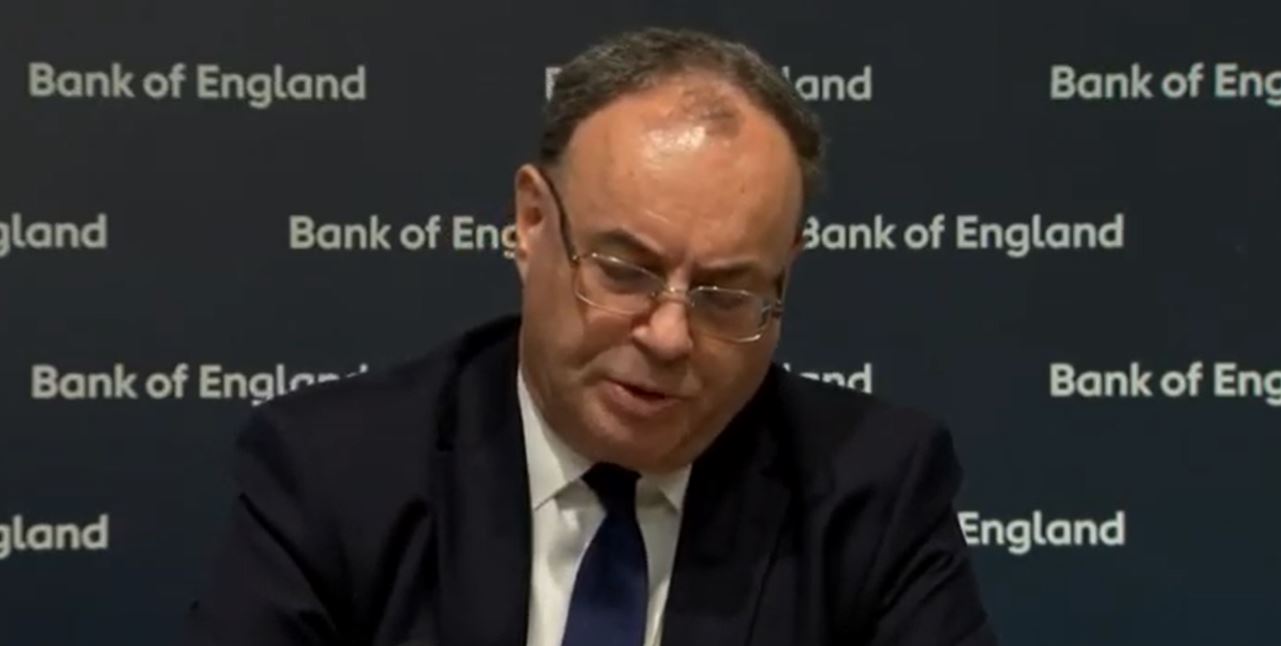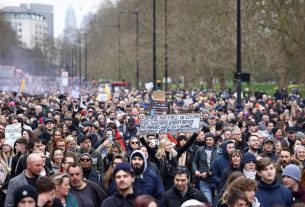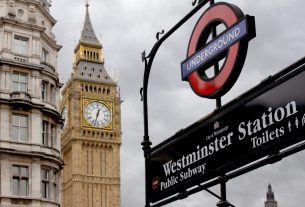The Bank of England has raised interest rates by 0.5% to 1.75% and given a bleak warning that the UK faces a lengthy recession that will hit millions of the most vulnerable people hardest.
UK interest rates are now at the highest level since January 2009 and today’s 0.5% hike is the steepest in 27 years – piling even more pressure on millions of households already struggling with the cost of living crisis.
The UK economy is predicted to enter a long recession this year that will last throughout 2023 and only start to ease in 2024.
Controlling inflation is ‘absolute priority,’ says BoE
Bank of England (BoE) governor Andrew Bailey said controlling rampant inflation is their absolute priority, explaining the situation has been exacerbated by the global energy price rise.
Wholesale gas prices have almost doubled since May and the BoE said this could push average household fuel bills – which were around £1,200 last year – to £3,500 in October. Another rise is set to take bills even higher in January after it was confirmed today that the energy price cap will now be set four times a year instead of twice to protect energy suppliers from bankruptcy.
UK inflation is forecast to hit 13% by the end of 2022 – much higher than the BoE forecast in May – and is currently almost double average wage awards, completely wiping out any real-terms increase and leaving workers poorer.
The consumer price index (CPI) rate of inflation rose to 9.4% in June – marking 11 consecutive months of rises. The BoE’s CPI target rate is 2% but it expects the rate to remain at “very elevated levels” through 2023 before falling back to its target rate in 2024.
However, the retail price index (RPI) inflation rate – which is used to set rail fares, student loans repayments and some payments to government – is predicted to soar by an astronomical 17.7%, according to the National Institute of Economic and Social Research (NIESR).
Household incomes are forecast to drop by 2.5% this year and will stay more than 7% below the pre-pandemic trend past 2026, according to the think-tank. They estimate 1.2 million British families will be forced to choose between heating or eating while 20% of households – 5.3 million – will see their savings wiped out.
Interest rates makes borrowing for govt and households more expensive
Analysts on BBC Radio 4’s World at One said the government will have to increase borrowing to respond to falling revenues and higher benefit costs. The cost of that borrowing will also rise because of rising interest rates.
Lord Ken Clarke – chancellor of the exchequer under Margaret Thatcher from 1983-87 – told the programme: “This winter is certainly going to be very unpleasant for many households in the country. I think it’s absolutely inevitable that the Bank of England acted as it did. I’d have been rather alarmed if they hadn’t put it up by at least 0.5%.”
Homeowners with variable interest rate mortgages will see their costs climb. Credit broker TotalMoney said today’s interest rate rise could see 75% mortgages for the average UK house – costing £270,709 – rising by extra £196 per month, compared to autumn 2021.
The average UK homeowner has £131,000 worth of mortgage debt, according to UK Finance who said tracker deals on that debt will cost an extra £396 per. Others will have to find an extra £50 per month (£600 per year) for their mortgages.




